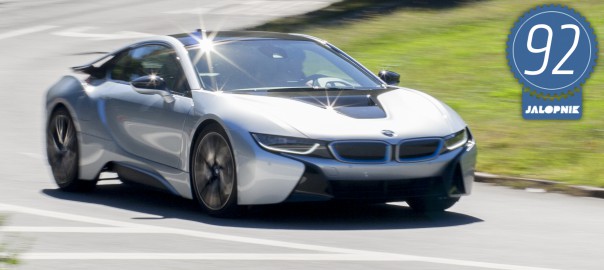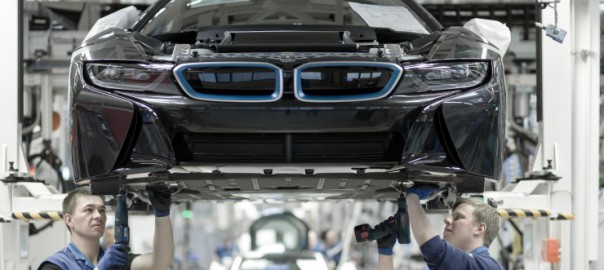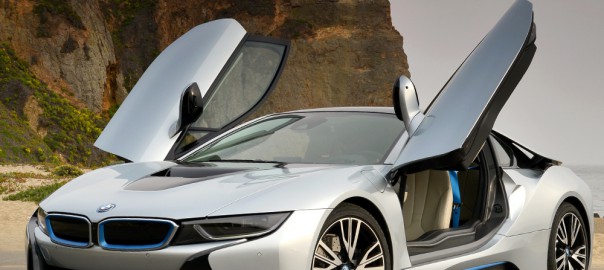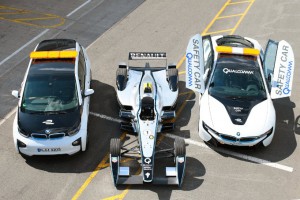The BMW i8 is the most significant and forward thinking car on the road today. This is BMW’s vision of the future, and, for once, the future is no longer doom and gloom. The future is a positive, thrilling place. A place that we want to be. Don’t be scared, gearheads, we’re going to be ok.
(Full Disclosure: BMW loaned us the i8 for five days. Five days where we couldn’t go anywhere without having someone’s jaw drop with a look like the future just drove by them. And that’s because it did.)
BMW’s i division is a huge gamble by the automaker. A company that has always been known for making “The Ultimate Driving Machine” was making a move into what are called “personal mobility products.”
Sounds sexy, right?
The i3 and i8 are meant to represent the future of motoring as BMW sees it. And thankfully that doesn’t mean soul sucking boredom. In the case of the i8, we have the 1.5 liter three cylinder from the Mini — which has been turboed to hell to make 228 horsepower and 236 pound feet of torque — sitting behind the driver. That charges the battery but also powers the rear wheels. Up front there is an electric motor producing 129 horsepower and 184 pound feet of torque.
Under normal conditions, the electric motor powers the i8. It can get up to 75 MPH under electricity alone and can go for about 20 miles on a full charge with no interaction from the engine.
But that’s not all. The electric and gas can work together to change efficiency to performance. Put the i8 in sport mode or slam the pedal down, and you get pure torque from the electric motor and revvy turbo goodness from the engine. Like the McLaren P1, LaFerrari, and Porsche 918, the i8 uses its electric motor to increase performance.
Read more: Jalopnik



